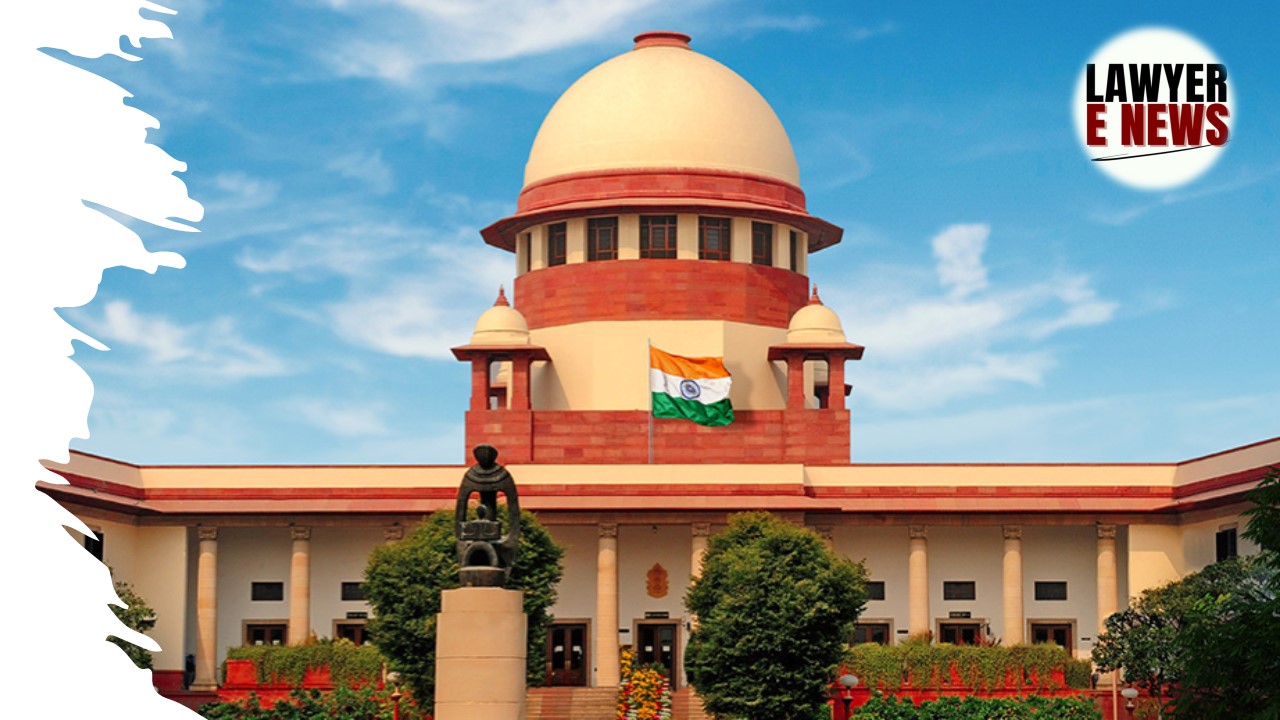-
by Admin
15 February 2026 5:35 AM



In a landmark judgment Supreme Court of India upheld the High Court's decree granting specific performance of an oral agreement of sale from 1986. The case revolved around whether subsequent purchasers of a property could be considered bona fide under Section 19(b) of the Specific Relief Act, 1963, despite failing to investigate the rights of a prior claimant in possession.
The bench of Hon'ble Justice J.B. Pardiwala and Hon'ble Justice R. Mahadevan dismissed the appeal, reiterating the stringent obligations on subsequent purchasers to conduct due diligence and inquire about the rights of individuals in possession. The judgment strengthens the principle that possession constitutes constructive notice under Section 3 of the Transfer of Property Act, 1882, requiring due care from purchasers.
The dispute arose from an oral agreement for the sale of property in February 1986, executed between the original owner and Darshana Devi (the plaintiff). Despite the agreement, the owner subsequently sold the property in August 1986 to the appellants, Manjit Singh and another. Darshana Devi initiated a suit for specific performance of the agreement, claiming her rights had been overlooked by the subsequent purchasers.
The trial court ruled in favor of Darshana Devi, granting specific performance. However, the first appellate court reversed this decision, siding with the subsequent purchasers. The High Court, on second appeal, reinstated the trial court's decree, holding that the appellants were not bona fide purchasers. Aggrieved, the appellants approached the Supreme Court.
The Supreme Court, after reviewing the facts and legal framework, upheld the High Court's findings that the appellants failed to meet the criteria of bona fide purchase under Section 19(b) of the Specific Relief Act, 1963.
The appellants contended that they were unaware of the plaintiff’s claim. However, the court emphasized that possession of property by a party serves as constructive notice under Explanation II to Section 3 of the Transfer of Property Act. The judgment observed:
"Actual possession of a person is deemed constructive notice of their rights. A subsequent purchaser has a duty to inquire into the nature and extent of such possession before proceeding with the purchase."
Justice Pardiwala, citing R.K. Mohammed Ubaidullah v. Hajee C. Abdul Wahab, reiterated:
"Good faith is a question of fact to be determined on a case-by-case basis. The burden lies on the purchaser to demonstrate that the transaction was conducted honestly, with due care and without negligence."
The court found that the appellants failed to exercise due diligence, as they did not inquire into the plaintiff’s possession or the terms of the prior agreement. The judgment highlighted:
"Wilful abstention from inquiry or gross negligence negates claims of good faith. The appellants’ failure to demand title deeds or question the plaintiff’s possession demonstrates a lack of due care and attention."
The court further referred to Ram Niwas v. Bano, observing that reliance solely on the vendor’s assertions without investigating the rights of others in possession amounts to wilful ignorance.
The court delved into the statutory definitions of "good faith" under various laws. It contrasted the General Clauses Act, 1897, which defines good faith as honesty irrespective of negligence, with the Bhartiya Nyaya Sanhita, 2023, which emphasizes both honesty and due care. The judgment noted:
"Good faith requires both honesty and due care. Negligence or lack of attention is incompatible with claims of good faith, as highlighted in multiple precedents."
The Supreme Court endorsed the High Court’s detailed findings, which pointed out inconsistencies in the appellants’ claims, including a lack of evidence for prior payments and the familial relationship between the owner and the appellants. Justice Mahadevan observed:
"The appellants’ failure to establish bona fide purchase under Section 19(b) of the Specific Relief Act renders their defense untenable. Their actions reveal collusion with the original owner, further undermining their claims."
Dismissing the appeal, the Supreme Court upheld the decree for specific performance in favor of the plaintiff. The judgment emphasizes the critical importance of due diligence in property transactions and reinforces the principle that possession implies constructive notice. The court concluded:
"No error of law or procedure was committed by the High Court in holding the appellants liable. The plaintiff is entitled to execute the decree for specific performance without obstruction from the subsequent purchasers."
This decision reaffirms the responsibility of purchasers to thoroughly investigate claims associated with the property they intend to acquire, thereby safeguarding the rights of individuals with prior equitable claims.
Date of Decision: November 21, 2024
